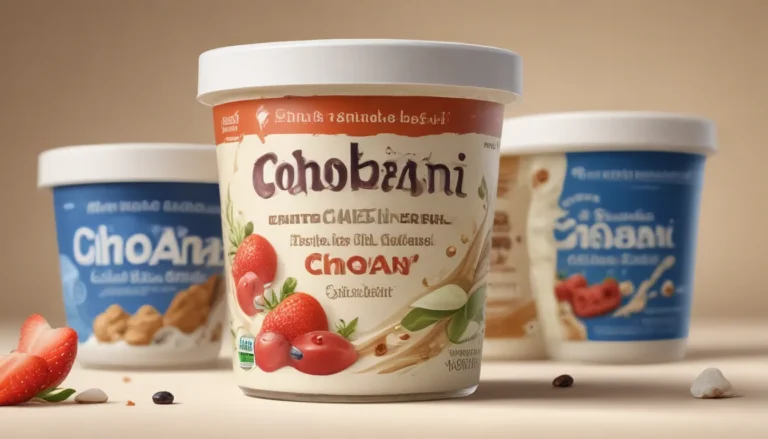The pictures in our articles might not always show exactly what the text is talking about. We use these images to make the article more interesting and eye-catching. They are there to add to the text, but not to replace it or show every detail.
Are you a bread lover looking to make healthier dietary choices? Look no further than sourdough bread! This ancient bread-making technique not only produces a delicious loaf but also packs a nutritional punch. In this article, we'll explore the fascinating world of sourdough bread nutrition facts and uncover 10 key benefits that make it a superior choice compared to regular bread.
What Makes Sourdough Bread Special?
Sourdough bread is created through a natural fermentation process using wild yeast and beneficial bacteria. This unique method not only gives the bread its characteristic tangy flavor but also enhances its nutritional profile. Let's dive into the surprising health benefits of this beloved bread!

1. Lower in Calories
For those watching their calorie intake, sourdough bread is an excellent choice. With approximately 120 calories per slice, it's a lighter option compared to many other bread varieties. This makes it easier to incorporate into a balanced diet without compromising on taste or satisfaction.
2. Rich in Essential Vitamins and Minerals
The fermentation process of sourdough bread enhances the bioavailability of key nutrients. This means your body can more easily absorb and utilize the following essential vitamins and minerals:
- B vitamins
- Iron
- Selenium
- Manganese
These nutrients play crucial roles in overall health, supporting everything from energy production to immune function.
3. Packed with Beneficial Bacteria
One of the unique sourdough bread nutrition facts is its probiotic content. The natural fermentation process cultivates beneficial bacteria like lactobacillus, which are essential for maintaining a healthy gut microbiome. A balanced gut flora can contribute to improved digestion, enhanced immune function, and even better mental health.
4. Lower Glycemic Index
If you're concerned about blood sugar levels, sourdough bread has you covered. It boasts a lower glycemic index compared to traditional bread, meaning it leads to a more gradual rise in blood sugar levels. This makes sourdough an excellent option for individuals managing diabetes or those looking to regulate their blood sugar.
5. Higher Protein Content
Protein is essential for muscle repair, satiety, and overall growth and development. Compared to regular white bread, sourdough bread contains more protein, making it a more nutritious choice for those looking to increase their protein intake.
6. Improved Digestibility
The extended fermentation process of sourdough bread breaks down complex carbohydrates and gluten, making it more digestible for many people. This is particularly beneficial for individuals with mild gluten sensitivities or digestive issues who may find traditional bread more challenging to digest.
7. Rich in Antioxidants
Sourdough bread is a surprising source of antioxidants. These powerful compounds help combat harmful free radicals in the body, potentially reducing the risk of chronic diseases and promoting overall health.
8. Good Source of Fiber
Fiber is crucial for digestive health, and sourdough bread delivers. The high fiber content aids in digestion, enhances satiety, and helps manage blood sugar levels. Additionally, the fiber in sourdough bread supports a healthy gut microbiome, further contributing to overall well-being.
9. Lower Phytate Levels
Phytates are compounds found in many grains that can interfere with nutrient absorption. One of the lesser-known sourdough bread nutrition facts is its lower phytate content. The fermentation process reduces phytate levels, making it easier for your body to absorb essential nutrients from the bread and other foods you consume.
10. Naturally Preservative-Free
Unlike many commercial bread varieties, sourdough bread is typically made without artificial preservatives. The natural fermentation process extends its shelf life while maintaining its nutritional value. This means you can enjoy fresh, wholesome bread without unnecessary additives.
Embracing Sourdough Bread in Your Diet
Now that you're aware of these impressive sourdough bread nutrition facts, you might be wondering how to incorporate this nutritious bread into your diet. Here are some delicious and healthy ways to enjoy sourdough:
- Toast it up: Enjoy a slice of toasted sourdough bread with mashed avocado and a sprinkle of sea salt for a nutritious breakfast.
- Make a sandwich: Use sourdough bread as the base for your favorite sandwich fillings, packing in extra nutrients and flavor.
- Create croutons: Cube leftover sourdough bread, toss with olive oil and herbs, and bake for homemade, nutrient-rich croutons.
- Serve with soup: Pair a warm bowl of soup with a slice of sourdough bread for a comforting and balanced meal.
The Bottom Line
Sourdough bread is more than just a tasty alternative to regular bread – it's a nutritional powerhouse. From its lower calorie content and improved digestibility to its rich array of vitamins, minerals, and beneficial bacteria, sourdough bread offers numerous health benefits.
By choosing sourdough bread, you're not only treating your taste buds but also nourishing your body with a food that has been cherished for centuries. So next time you're at the bakery or considering baking your own bread, remember these sourdough bread nutrition facts and make the healthier choice!
Remember, while sourdough bread offers many nutritional benefits, it's still important to consume it as part of a balanced diet. If you have specific dietary concerns or health conditions, always consult with a healthcare professional or registered dietitian for personalized advice.






